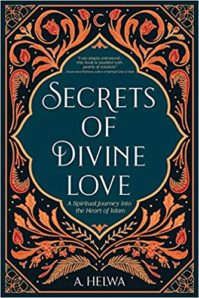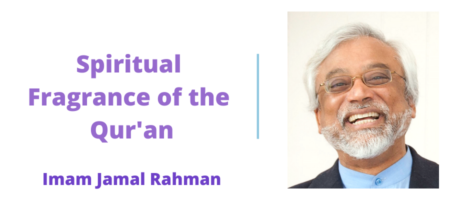“Oh humankind, indeed We have created you from male and female and made you nations and tribes that you may know one another. The most noble of you in the sight of Allah is the most righteous of you” (49:13)
We human beings may look different, but the love we long for is the same. There is no hierarchy in Islam because we are all equal in the eyes of God. In the Qur’an, Allah speaks about how all of humankind comes from a single soul, and so the diversity in our colors and languages is not a means of creating separation between people, but rather an opportunity to experience God’s boundless creativity.
The purpose of Islam is to be a face of surrender to God’s loving will on Earth for all people. The principles of Islam teach us to be messengers of peace—to be like water, gentle enough to wash away tears and strong enough to drown hatred. To be a believer is to protect the weak, the orphan, the beggar, the disabled of all races and cultures. To be a representative of God’s love is not to be color-blind, but to see the differences between people and to celebrate that diversity as a product of the free will that God chose to give us. As the Qur’an says, “And of His signs is the creation of the heavens and the earth and the diversity of your languages and your colors. Indeed, in that are signs for those of knowledge.” (30:22)
Religion was sent not to divide us, but to unveil to us the truth that although we may be separate fruits, we are all hanging from the same tree of life. Our skin may have been painted by God in many shades and tones, but the color of our souls is one.
We are all creations of God, so how could one person be less worthy than the next when the same God took the same breath to create both of them? We are many in the one. We are countless fruits in a single seed. We are a drop that carries all of the oceans, and you are you but you are also me. Let go of these outer differences and dive into the breath of divinity within this single soul we both carry. As the 14th century Persian poet Mahmad Shabistari said, “There is only One Light and ‘you’ and ‘I’ are holes in the lamp shade.”

This blog is an excerpt from A. Helwa’s recently published best-selling book, “Secrets of Divine Love: A Spiritual Journey into the Heart of Islam.” Her book is available on Amazon.com
#1 Best Seller
About A. Helwa
A. Helwa believes that every single person on Earth is deeply loved by the Divine. She is a writer who has inspired hundreds of thousands of readers through her passionate, poetic, and love-based approach to spirituality. Her popular blog @quranquotesdaily, was established while obtaining her Masters in Divinity, as a means of helping others overcome personal and spiritual struggles on their journey of experiencing divine love.
With over 15 years of experience writing and speaking on Islam and spiritual development, A. Helwa draws from her personal experiences and traditional sources to help her readers access ‘Divine love in everyday life.’
